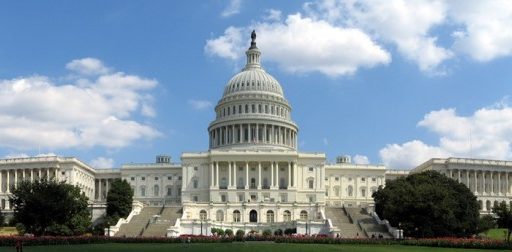U.S. In Danger Of Losing AAA Credit Rating
Both Moody’s and S&P warned today that the United States is in danger of losing its stellar credit rating due to our fiscal problems:
LONDON—Two leading credit rating agencies on Thursday cautioned the U.S. on its credit rating, expressing concern over a deteriorating fiscal situation that they say needs correction.
Moody’s Investors Service said in a report Thursday that the U.S. will need to reverse an upward trajectory in the debt ratios to support its triple-A rating.
“We have become increasingly clear about the fact that if there are not offsetting measures to reverse the deterioration in negative fundamentals in the U.S., the likelihood of a negative outlook over the next two years will increase,” said Sarah Carlson, senior analyst at Moody’s.
Standard & Poor’s Corp. on Thursday also didn’t rule out changing the outlook for its U.S. sovereign-debt rating because of the recent deterioration of the country’s fiscal situation. The U.S. currently has a triple-A rating with a stable outlook at both agencies.
“The view of markets is that the U.S. will continue to benefit from the exorbitant privilege linked to the U.S. dollar” to fund its deficits, Carol Sirou, head of S&P France, said at a Paris conference Thursday. “But that may change. We can’t rule out changing the outlook” on the U.S. sovereign debt rating in the future, she warned. She added the jobless nature of the U.S. recovery was one of the biggest threats to the U.S. economy. “No triple-A rating is forever,” she said.
Even a drop from AAA to AA would mean hundreds of billions of dollars a year in additional interest expenses, which is one budget expense that we cannot cut.
As of Tuesday, the National Debt is $14,019,559,567,587.86. We are long past the time when we should have been dealing with this.






It is said that Churchill once quipped “The United States invariably does the right thing, after having exhausted every other alternative.” I think that about covers it. We’ll deal with our fiscal problems when there is no other alternative and not a minute before.
Foreclosing on debt and not paying. Conservatives say this is something people have to deal with – take responsibility and own up.
But America is exempt. It doesn’t have to pay back or be the adult if it doesn’t want to.
Imma let you all in on a secret – in the same sense that liberalism and the enlightenment was coopted into nationalism after the French revolution for the purposes of creating a muscular French self-defending ideology, the virtues and ethics of responsibility are only espoused by the modern right because it is politically gainful for them and also allows them to peddle American exceptionalism and jingoism.
But when following free-market, neo-liberal, classical and libertarian ideals (such as taking responsibility for your loans if you can, rather than falling back on “buyer/loaner beware”) would involve the US actually having to grit its teeth then all of a sudden it’s socialism time – ‘we don’t want more debt, so we are going down in flames and taking you guys with us’.
This is teenage behavior, guys. If you don’t raise the debt ceiling, I hope you crash and burn HARD.
The debt ceiling is irrelevant to this discussion, Axel Edgren. It’s simply the level of debt that is daunting. Let’s put it in some perspective. Not only is U. S. debt approaching 100% of U. S. GDP, it’s approaching a third of world GDP. It’s one thing for Argentina’s (or even Japan’s) debt to be 100% of GDP. It’s another for the United States.
Raising the debt ceiling is a formality and it won’t resolve our fiscal problems. Our fiscal problems are due to our level of government spending relative to our levels of government revenue and national income.
And why is it the heads of these “ratings agencies” aren’t in jail for their role in tanking the world’s economy, giving AAA ratings to securities they knew were lousy because the big banks were paying them to do so?
“Raising the debt ceiling is a formality and it won’t resolve our fiscal problems.”
OH NOES! My entire support of raising the debt ceiling hinged on the idea that doing so would resolve America’s fiscal problems. I’M MELTING IN THE ACERBITY OF YOUR TRUTH. The illumination – it BURNS.
Yeah no seriously, you’re gonna raise the fricking debt ceiling.
I’m not arguing against raising the debt ceiling, indeed, I have no problems with doing so. As I said, it is merely a formality. I just think that having a debt ceiling has very little to do with our fiscal problems.
“The debt ceiling is irrelevant to this discussion, Axel Edgren.”
Uh, Dave, I somehow think the specter of DEFAULTING on our debt, which would be the instantaneous effect of not raising the ceiling, does indeed have some bearing on our credit rating.
As I noted over at my blog, http://www.professorbainbridge.com/professorbainbridgecom/2011/01/the-usas-creditworthiness.html: “I always lean towards trusting folks with skin in the game. If the price of credit default swaps on Treasuries starts going up, then it’ll be time to panic. For now, it’s just a reminder that we need to get our house in order sooner rather than later.”
I have to agree with Prof. Bainbridge. It seems that this story comes out every year or so. It’s kind of a “cry wolf” situation for me now.